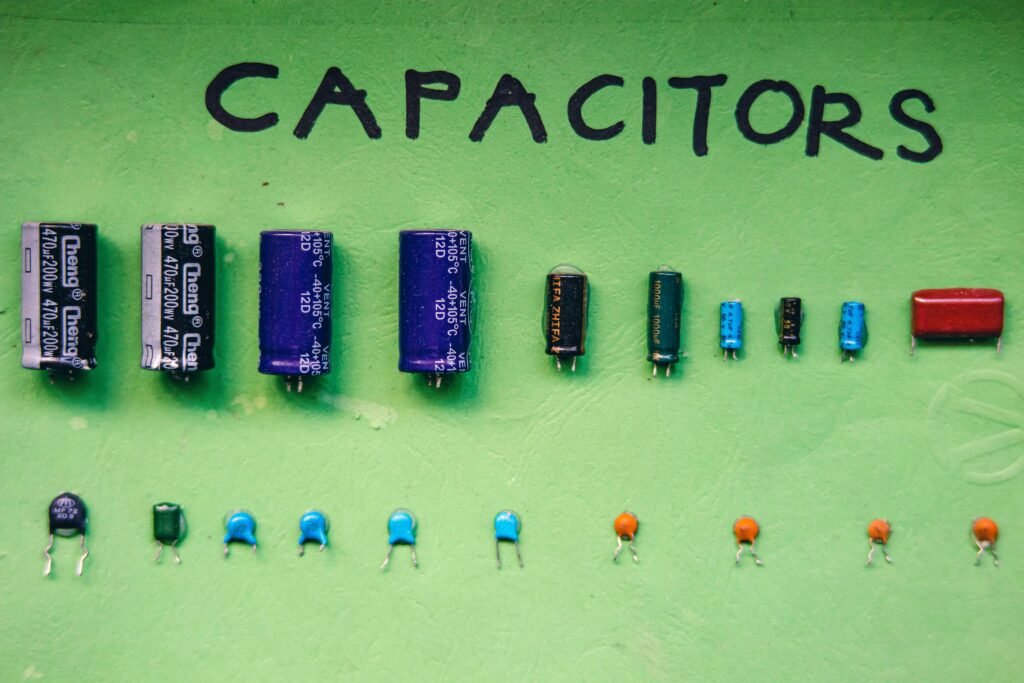Imagine this scenario: you’re at home, enjoying a quiet evening when suddenly you hear a loud buzzing noise and your lights flicker for a brief moment. Panic sets in as you realize there could be an electrical issue. Electrical safety is something we often take for granted, but it is crucial for protecting ourselves and our loved ones. In this article, we will explore some essential tips for electrical safety at home that will help you avoid potential hazards and ensure a peaceful and secure living environment.
Check out our Product Reviews
Understanding Electrical Hazards
Electrical hazards can pose significant risks to both your safety and the integrity of your home. It is crucial to have a good understanding of these hazards in order to prevent accidents and potential damage. Common electrical hazards include faulty wiring, damaged electrical cords, overloading circuits, and water coming into contact with electrical appliances. Being aware of these potential dangers will help you take the necessary precautions to ensure a safe electrical environment in your home.
Common Electrical Hazards
Faulty Wiring: Faulty wiring is one of the leading causes of electrical accidents. Outdated or improperly installed wiring can result in electrical fires and electrocution hazards. Signs of faulty wiring include frequent tripping of circuit breakers, flickering lights, and burning smells from outlets or switches.
Damaged Electrical Cords: Frayed or damaged electrical cords can also pose a significant risk. These cords can expose wires, leading to the potential for electric shocks or fires. It is essential to regularly inspect your electrical cords and replace any damaged ones immediately.
Overloading Circuits: Overloading circuits occurs when too many electrical devices are plugged into a single outlet or circuit. This can cause overheating and potentially lead to electrical fires. It is important to distribute the load evenly across different outlets and circuits to avoid overloading.
Water and Electrical Appliances: Water and electricity do not mix well. It is important to keep water away from electrical appliances to prevent electrocution and short circuits. Bathrooms and swimming pools are common areas where water and electrical hazards can occur.

This image is property of images.pexels.com.
Check out our Product Reviews
Potential Dangers of Electrical Accidents
Electrical accidents can have severe consequences, ranging from electrical shocks to fatal injuries. Electrocution, burns, and fires are some of the potential dangers associated with electrical accidents. The human body is a conductor of electricity, and even a small electric shock can disrupt the electrical signals in your body and cause serious harm.
When an electrical current passes through your body, it can affect your heart rhythm, leading to cardiac arrest. Burns can also occur when an electric shock causes the skin to catch fire or when contact with an electrical source generates extreme heat. Furthermore, electrical fires can quickly spread throughout your home, putting you and your loved ones in grave danger.
Understanding and implementing proper electrical safety precautions will significantly reduce the risks associated with electrical accidents, ensuring a safe home environment for you and your family.
Electrical Safety Precautions
Implementing electrical safety precautions is crucial for preventing accidents and maintaining a safe electrical environment in your home. By following these precautions, you can minimize the potential risks associated with electricity.
Regular Electrical Maintenance
Regular electrical maintenance is essential to prevent hazards caused by faulty wiring or damaged electrical components. It is advised to have a qualified electrician inspect your electrical system periodically. They can identify any potential issues and perform necessary repairs or replacements to ensure everything is in working order.
Proper Grounding
Proper grounding is an essential safety measure that helps prevent electrical shocks and protects against electrical surges. Ensure that your home’s electrical system is properly grounded, as this will provide a safe path for electrical currents to flow and prevent the buildup of excess electricity.
Avoiding Overloading
Overloading electrical circuits can result in overheating and potentially lead to electrical fires. Distribute electrical devices across different outlets and circuits to avoid overloading. Use power strips with built-in surge protectors to safely accommodate multiple devices without overburdening a single outlet.
Using Safety Plugs and Covers
Safety plugs and covers can help protect young children and pets from the dangers of electrical outlets. These devices prevent accidental contact with live electrical components, reducing the risk of electric shocks and burns.
Using Circuit Breakers and Fuses
Circuit breakers and fuses act as safety mechanisms in your electrical system. They detect electrical overloads or short circuits and automatically cut off the electricity flow. Check your circuit breakers and fuses regularly to ensure they are functioning correctly and replace any faulty ones promptly.
Keeping Electrical Cords in Good Condition
Inspect your electrical cords regularly for any signs of damage, such as fraying or exposed wires. Replace damaged cords immediately to avoid the risk of electric shock or fire. Additionally, ensure that cords are not stretched or bent in a way that could damage the internal wiring.
Keeping Water Away from Electrical Appliances
Water and electricity do not mix well, as water is an excellent conductor of electricity. It is important to keep water away from electrical appliances, especially in areas such as bathrooms and kitchens. Always dry your hands thoroughly before handling electrical devices, and never operate them with wet hands.
Using Electrical Appliances Safely
When using electrical appliances, it is essential to follow the manufacturer’s instructions and safety guidelines. Avoid using appliances near water sources, unless they are specifically designed for such use. Never stick objects into electrical devices or attempt to repair them yourself, as this can lead to electrocution or further damage.

This image is property of images.pexels.com.
Safe Practices for Electrical Outlets
Electrical outlets are critical elements of our everyday lives, providing power to our devices. However, it is important to practice safety measures to reduce the risk of accidents or damage caused by electrical outlets.
Avoiding Tampering with Outlets
Tampering with electrical outlets can lead to serious consequences. Never insert foreign objects into outlets, as this can cause electric shocks or damage the outlet. Additionally, avoid meddling with wiring or attempting to modify outlets without proper knowledge and training.
Avoiding Overloading Outlets
Overloading outlets by plugging too many devices into a single outlet can lead to overheating and electrical fires. Monitor the number of devices you plug into each outlet and distribute the load evenly across multiple outlets or circuits whenever necessary.
Using Appropriate Plugs and Adapters
Using appropriate plugs and adapters is imperative for electrical safety. Avoid using adapters that have more sockets than your electrical system can handle, as this can exceed the outlet’s capacity and cause overloading. Additionally, ensure the plugs on your devices match the outlets you are using, and never force a plug into an incompatible socket.
Using Child-Proof Outlets
If you have young children at home, it is crucial to have child-proof outlets installed. Child-proof outlets have safety mechanisms that prevent children from inserting objects into the outlets, protecting them from electric shocks or burns. These outlets are a valuable safety precaution to ensure the well-being of your family.
Safety Measures for Electrical Appliances
Electrical appliances are an integral part of our daily routines, from cooking meals to doing laundry. However, it is important to handle these appliances safely to prevent accidents and ensure their longevity.
Inspecting Appliances Before Use
Before using any electrical appliance, carefully inspect it for any signs of damage or wear. Check the power cords, plugs, and switches for fraying, exposed wires, or loose connections. If you notice any issues, do not use the appliance and have it repaired or replaced by a professional.
Avoiding DIY Repairs on Appliances
Attempting to repair electrical appliances on your own can be extremely hazardous. Electrical systems can be complex, and improper repairs can lead to electrical shocks, fires, or further damage. It is always best to leave appliance repairs to qualified professionals who have the necessary expertise and tools.
Avoiding Using Wet Hands
Using electrical appliances with wet hands significantly increases the risk of electric shock. Always ensure that your hands are dry before operating any electrical device. If you are using appliances in wet environments, such as kitchens or bathrooms, consider wearing rubber gloves for added protection.
Unplugging When Not in Use
When appliances are not in use, it is essential to unplug them from the power source. Leaving appliances plugged in unnecessarily not only wastes energy but also increases the risk of electrical accidents. Additionally, unplugging appliances reduces the risk of electrical fires caused by faulty circuits or power surges.
Ensuring Proper Ventilation
Many electrical appliances generate heat while in operation. It is important to ensure proper ventilation around these appliances to prevent overheating and potential fire hazards. Avoid covering or blocking vents on appliances such as refrigerators, air conditioners, and ovens to maintain optimal airflow.

This image is property of images.pexels.com.
Handling Electrical Cords Safely
Electrical cords are used to connect appliances and devices to power sources, providing the necessary electricity for their operation. However, when not handled properly, electrical cords can become safety hazards.
Avoiding Damage to Cords
Electrical cords should be treated with care to prevent damage that could lead to electrical shocks or fires. Avoid running cords under rugs or furniture, as this can cause fraying or internal damage. Additionally, be cautious when unplugging cords by pulling the plug, not the cord itself, to avoid damaging the wires inside.
Not Using Cords as Substitutes for Permanent Wiring
Electrical cords are designed for temporary use, such as connecting devices to outlets. Using extension cords or power strips as permanent wiring can overload circuits and lead to electrical fires. If you find that you frequently require additional outlets, consider consulting an electrician to install additional wall outlets to meet your needs safely.
Keeping Cords Away from Heat Sources
Heat can cause damage to electrical cords, increasing the risk of electrical fires. Keep cords away from heat sources, such as radiators or heating vents, to prevent them from melting or becoming brittle. High temperatures can compromise the insulation of the wires inside the cord, making them more susceptible to electrical hazards.
Proper Storage of Cords
Properly storing electrical cords when not in use is crucial to maintain their integrity and prevent accidents. Avoid tangling cords, as this can cause internal damage and increase the risk of fraying. Bundle cords neatly and store them in a cool, dry place to protect them from environmental elements that can affect their quality.
Safety in Wet Environments
Certain areas in our homes, such as bathrooms and swimming pools, are inherently wet environments. It is important to implement specific safety measures to protect against electrical hazards in these areas.
Bathroom Electrical Safety
Bathrooms are high-risk areas due to the combination of water and electrical appliances. To ensure bathroom electrical safety, ensure that all outlets in the bathroom are protected by ground fault circuit interrupters (GFCIs). GFCIs are designed to quickly shut off the power in the event of a ground fault, significantly reducing the risk of electrical shock.
Additionally, avoid using electrical devices near water sources unless they are specifically designed for such use. Electrical devices such as hair dryers or electric razors should only be used after drying off and ensuring that hands and feet are dry.
Swimming Pool Electrical Safety
Swimming pools pose unique electrical hazards due to the proximity of water and potential for electrical equipment to come into contact with water. All electrical equipment and wiring associated with swimming pools should be installed and maintained by licensed electricians who are well-versed in pool electrical safety.
Furthermore, never use electrical devices near a swimming pool, especially when you are wet. If you notice any electrical hazards around your pool, such as exposed wires or malfunctioning equipment, immediately contact a professional electrician to address the issue.
Safety When Using Ladders or Scaffolding Near Powerlines
When working with ladders or scaffolding near powerlines, it is crucial to exercise caution to prevent potentially lethal electrical accidents.
Maintaining Distance from Powerlines
When using ladders or scaffolding, maintain a safe distance from overhead powerlines to prevent accidental contact. Contact with powerlines can result in severe electrical shocks and may even be fatal. It is advised to maintain a distance of at least 10 feet from powerlines to ensure your safety.
Using Non-Conductive Ladders or Scaffolding
When working near powerlines, ensure that you are using non-conductive ladders or scaffolding. Metal ladders or scaffolding can conduct electricity, increasing the risk of electrical shock if they come into contact with powerlines. Materials such as fiberglass or wood are non-conductive and offer a safer option for working around powerlines.
Dealing with Electrical Emergencies
Electrical emergencies can happen unexpectedly and require immediate attention. Knowing how to handle these situations can make a significant difference in minimizing potential injuries or property damage.
Knowing How to Shut Off the Power
In the event of an electrical emergency, it is essential to know how to shut off the power to your home. Locate your electrical panel and familiarize yourself with its operation. In case of an emergency, such as electrical fires or electric shocks, shutting off the power can prevent further damage and reduce the risk of injury.
Basic First Aid for Electrical Accidents
If someone experiences an electrical shock, it is crucial to prioritize their safety and seek medical help immediately. Remember not to touch the person while they are still in contact with the electrical source. Turn off the electricity, if possible, and call emergency services right away. If the person is not breathing or does not have a pulse, begin CPR until medical professionals arrive.
Calling Emergency Services
Electrical emergencies can quickly escalate, so it is important to call emergency services as soon as possible. If an electrical accident occurs, such as a fire or serious injury, dial your local emergency number to ensure that trained professionals can respond promptly and provide the necessary assistance.
Educating Children about Electrical Safety
Teaching children about electrical safety is critical to prevent accidents and instill safety habits from a young age. By educating children about the dangers of electricity, you can empower them to make safer choices and avoid potentially hazardous situations.
Teaching About Electrical Dangers
Explain to children the potential dangers of electricity in a way that is age-appropriate and easy to understand. Teach them about electrical outlets, cords, and appliances, and how to identify potential hazards. Encourage them to ask questions and reinforce safety rules regularly.
Supervising Children’s Use of Electrical Devices
Supervision is key when it comes to children and electrical devices. Always monitor their use of electrical appliances and outlets, ensuring they operate them safely and responsibly. Educate them about the proper use of electrical devices and teach them to ask for assistance when needed.
Getting Professional Help
When it comes to complex electrical tasks or issues, seeking professional help is crucial. Electricians are highly trained professionals who can provide expert advice and solutions to ensure electrical safety in your home.
Consultation with Electricians
Consulting with electricians can help you identify potential electrical hazards in your home and develop strategies to mitigate them. Electricians can perform thorough inspections of your electrical system, identify outdated or faulty wiring, and recommend necessary repairs or upgrades.
Seeking Assistance when Handling Complex Electrical Tasks
When it comes to complex electrical tasks, such as installing new circuits or wiring, it is best to seek assistance from professional electricians. They have the knowledge, skills, and tools to handle these tasks safely and ensure compliance with electrical codes and regulations.
Remember, electrical safety should be a top priority in your home. By understanding electrical hazards, implementing safety precautions, and seeking professional help when needed, you can create a safe environment for you and your loved ones. Stay educated, be proactive, and prioritize electrical safety in all aspects of your daily life.
Check out our Product Reviews